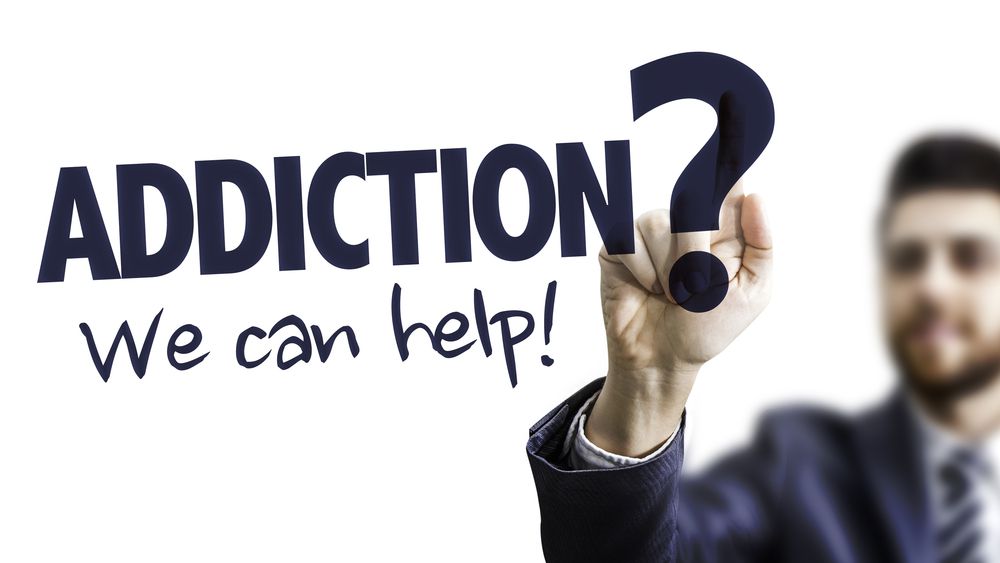
Tips To Overcome Addiction
Developing an addiction to drugs isn’t a character flaw or a sign of weakness, and it takes more than willpower to overcome the problem. Abusing illegal or prescription drugs can create changes in the brain, causing powerful cravings and a compulsion to use that makes sobriety seem like an impossible goal.
But recovery is never out of reach, no matter how hopeless your situation seems or how many times you’ve tried and failed before. With the right addiction treatment and support, change is always possible.
For many people struggling with addiction, the toughest step toward recovery is the very first one: recognizing that you have a problem and deciding to make a change.
It’s normal to feel uncertain about whether you’re ready to start recovery or if you have what it takes to quit. If you’re addicted to a prescription drug, you may be concerned about how you’re going to find an alternate way to treat a medical condition. It’s okay to feel confused.
Understanding Addiction
Addiction affects the frontal cortex of your brain and alters your impulse control and judgement. The brain’s reward systems are also altered so that the memory of previous rewards can trigger a craving or increased “hunger” for drugs or rewarding experiences, in spite of negative consequences.
These changes in your brain can make quitting difficult, but it is important to remember that addictions are treatable. With the right plan and resources, recovery is possible.
The good news is that you can quit, although it’s a complicated process. There are many factors—physical, mental, emotional, and biological—that make quitting difficult. This complexity is why so many people find that addiction treatment helps guide them through the process of quitting.
Tolerance and Withdrawal Symptoms
Tolerance and withdrawal are key factors that contribute to addiction. If people didn’t develop tolerance or experience withdrawal, they would probably find it a lot easier to quit.
Tolerance is both a physical and psychological process. The more times the behaviour is repeated, the less sensitivity you have to it, and the more you need to get the same effect. Drugs, such as alcohol and opiates, work on specific parts of the brain, creating physical tolerance.
When you’re addicted to a substance or behaviour, you may experience symptoms of withdrawal when you stop. These symptoms are relieved temporarily when you start using the substance or doing the behaviour again. But they go away over time and often permanently after you quit. These symptoms are best handled by a medical professional as they can be very dangerous.
Because of tolerance and withdrawal symptoms, you are much more likely to quit successfully if you start recovery at the first sign of a problem. Addiction treatment plans should take this into account.
Tips for Quitting
Overcoming an addiction is a process that requires making the decision to quit, planning how you will quit, dealing with the effects of withdrawal, and avoiding relapse.
With addiction treatment, you want to make sure that you set yourself up for success. For example, if you are trying to avoid alcohol, you should avoid places where you know there will be alcohol.
Some other strategies for quitting an addiction include the following:
- Prepare to quit: Before you quit, think about what you will need to do in order to give up your addiction. This might include eliminating triggers in your environment and finding social support.
- Consider medications to treat addiction: If you have an alcohol or drug addiction, there are medications that can help you quit safely and successfully. Talk to your doctor about these options when you are planning to quit.
- Consider your environment: Get rid of anything that might remind you of your addiction or trigger a craving. In some cases, you may find that you need to change your routines (like avoiding bars or restaurants where you used to drink) or social patterns (such as not hanging out with people you used to drink or use drugs with).
- Find distractions: Staying busy can be a helpful way to distract yourself from cravings and temptations to relapse. Plan what you can do when a craving hits. For example, you might go for a walk, read a book, watch a television show, or call a friend.
- Reflect on your life: You can enjoy your life to the fullest without having to consume drugs, watching TV shows all day or wasting your money at the casino. Every human being has been wired to feel good. But societal norms and the mass media are encouraging unhealthy ways of seeking pleasure.
- Harness your creativity: Do you like playing music, dancing, drawing or acting? These art forms are important for recovering addicts because they can do them without having to suffer from the side effects of substances and other destructive behaviours. These activities are a healthy outlet.
- Be accountable to someone: In the professional world, people who want to stop procrastinating and boost their productivity and performance use accountability partners. These partners keep them sober and accelerate their rate of recovery. Having a sober partner will help you beat your addiction. You should communicate with your accountability partner at least once or twice a week. You’ll share your thoughts and emotions, and your progress.
- Exercise regularly: Studies show that physical activity improves your health and reduces the risk of developing terminal diseases such as cancer, heart disease, and diabetes. Physical exercise will help you feel better about yourself because it energizes you during the day.
- Identify your weak spots: When are you most likely to indulge in addictive behaviour or consume a drug? Do you like doing it in the morning? Do you do it in your car? Or in the bar? By knowing what your triggers are, you can make plans early enough to avoid falling into the same pattern again and again.
- Get support: Talk to the people close to you about your addiction treatment plan and ask them for support. Knowing that there are people in your corner who are willing to help you cope with the challenges of quitting can help you feel more encouraged when you are facing difficulties.
In addition to medications, psychotherapy can also be effective in helping overcome addiction. Cognitive behaviour therapy (CBT) is one approach that can help people change their thinking patterns and learn healthy skills.
It is important to remember that there isn’t a single treatment that is right for everyone, so working with a therapist to find the right approach for you can improve your chances of success. Other approaches that can be effective include contingency management, rational emotive behaviour therapy (REBT), and mindfulness-based approaches.
Getting Help
Addiction and substance use disorders are treatable. Like other chronic relapsing diseases such as asthma or heart disease, addiction isn’t curable, but it can be successfully managed through proper treatment. This illness has a relapse rate similar to that of other chronic diseases. For example, the relapse rate for asthma or high blood pressure is 50-70%, while addiction has a relapse rate of around 40-60%.
Addiction relapse is considered a normal part of the recovery process; relapse does not mean that treatment has failed, but it can mean that your addiction treatment plan or treatment methods need to be re-evaluated.
At Thousand Islands Rehab Centre, our addiction treatment plans are individualized and constantly adjusted to your changing needs—considering your biological, psychological, and social considerations. Your plan may involve a continuum of care, starting from the moment you enter detox, which focuses on treating withdrawal and helping you become medically stable. Once you’ve completed detox, you’ll be ready to transition to additional rehabilitation.
Our addiction treatment lengths vary depending on the complexity of the addiction and whether you have coexisting conditions or addictions to more than one substance. When your formal treatment program comes to an end, you will move on to aftercare, which is designed to promote lifelong sobriety.
The longer you wait to start recovery, the more challenging it will be to tackle the addiction. Call us today to get started. A better life is waiting for you.


